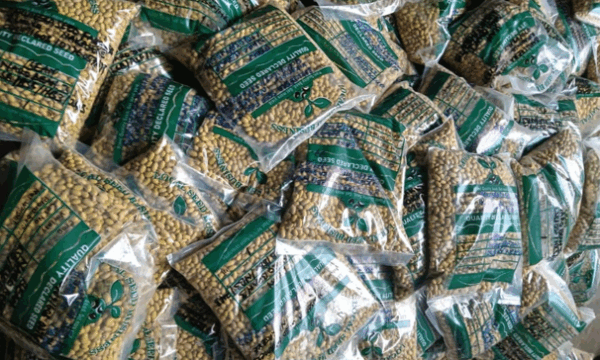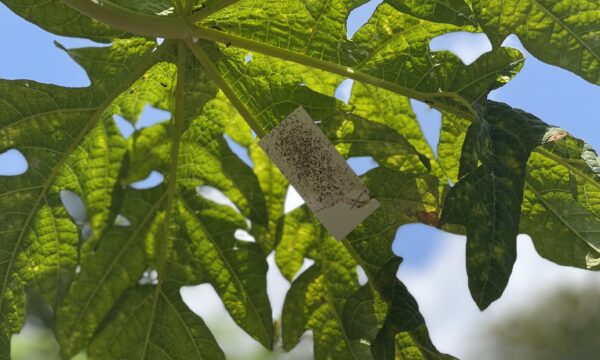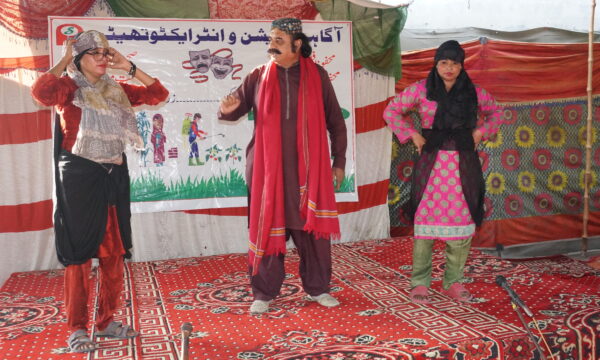
CABI is today calling for greater investment in food security programmes to help stem the global rise in hunger following the publication of a UN report which says more than 820 million people worldwide are still going hungry.
The report, from the UN Food and Agriculture Organization (FAO), the International Fund for Agricultural Development (IFAD), the UN Children’s Fund (UNICEF), the World Food Programme (WFP) and the World Health Organization (WHO), highlights that while the number of people who suffer from hunger has slowly increased – an estimated 2 billion people also do not have regular access to safe, nutritious and sufficient food.
The uneven pace of economic recovery, The State of Food Security and Nutrition in the World 2019 report adds, is undermining efforts to end hunger and malnutrition with hunger increasing in many countries where the economy has slowed down or contracted, mostly in middle-income countries.
CABI Director General, Development, Dr Dennis Rangi agrees with the report’s authors who state that in order to safeguard food security and nutrition it is ‘critical to have in place economic and social policies to counteract the effects of adverse economic cycles when they arrive. ’
But Dr Rangi, who fears funding for food security programmes has decreased in recent years as donors have shifted their priorities to other areas of focus, says more investment needs to be pumped into global initiatives – such as CABI’s global Plantwise programme – which are helping the world’s 500 million smallholder farmers grapple with crop threatening pests and diseases.
Dr Rangi said, “It is extremely concerning that investment in food security programmes does not seem to be keeping pace with global efforts of working towards the Sustainable Development Goal of ‘Zero Hunger’ by 2030.
“This SDG, as well as many others including ‘Zero Poverty’, are at severe risk unless more money is ploughed back into accelerating agricultural GDP growth in low income countries – a move which is three-times more effective in reducing economic inequalities as non-agricultural efforts – to increase food security and nutrition.
“Creating greater capacity and reach for food security initiative such as CABI’s Plantwise programme for example – which has been proven to have a significant impact on increasing smallholder farmers’ yields and productivity – is just one way in which we can reverse the impacts of food insecurity and help reduce hunger for one and all.”
Plantwise helps farmers increase their yields and incomes while reducing the use of toxic pesticides. The programme also helps countries improve their national plant health systems, so that they can prevent and respond to pest outbreaks more effectively.
Since its launch in 2011, Plantwise has supported over 30 million smallholder farmers across the world with the knowledge they need to lose less of what they grow to pests and diseases, increasing food security and improving rural livelihoods.
Summary of UN State of Food Security and Nutrition in the World 2019 report
- After years of steady decline, the trend in world hunger – as measured by the prevalence of undernourishment – started to rise again in 2015, to around 11 percent in the last three years.
- Africa is the region with the highest prevalence of undernourishment, at almost 20 percent. Western Asia also shows a continuous increase since 2010, with more than 12 percent of its population undernourished today.
- The number of people who suffer from hunger has also slowly increased to more than 820 million people, and it is estimated that over 2 billion people do not have regular access to safe, nutritious and sufficient food (including 8 percent of the population in Northern America and Europe).
- Economic shocks are contributing to prolonging and worsening the severity of food crises caused primarily by conflict and climate shocks.
- The UN report recommends integrating food security and nutrition concerns into poverty reduction efforts, which will help accelerate both poverty reduction and hunger eradication.
- The report also recommends that trade policy is crucial to promoting economic transformation which will support food security and nutrition objectives.
See http://www.fao.org/publications/sofi for full report
1 Comment
Leave a Reply
Related News & Blogs
How plant clinics are strengthening crop health services in Bangladesh
When the first-ever plant clinic in Bangladesh opened in Dhaka in 2013, it initially faced a lack of interest due to its novelty and limited awareness among farmers. However, it went on to expand, providing advice to over 17,000 farmers and led to the…
2 July 2025





[…] This content was originally published here. […]